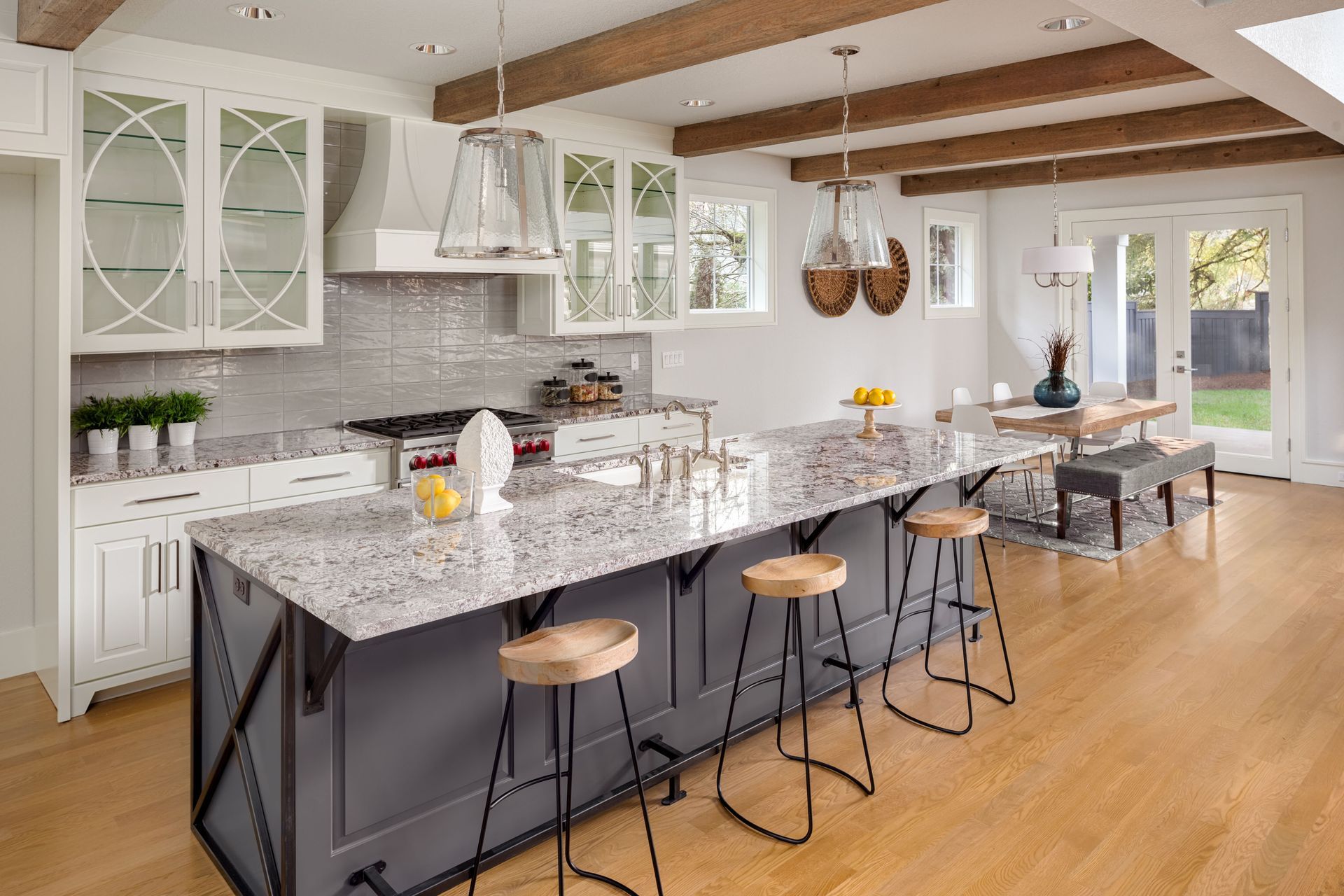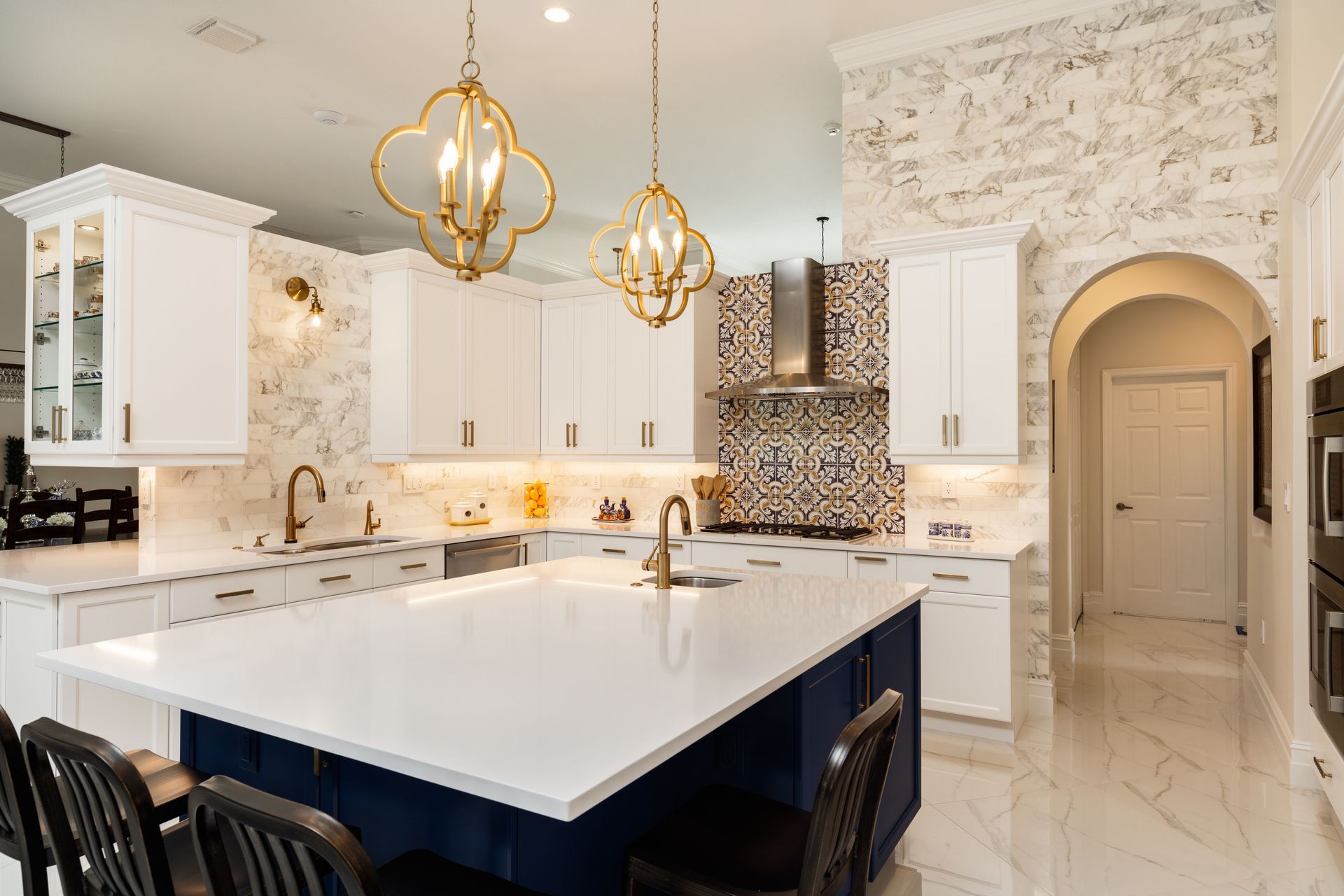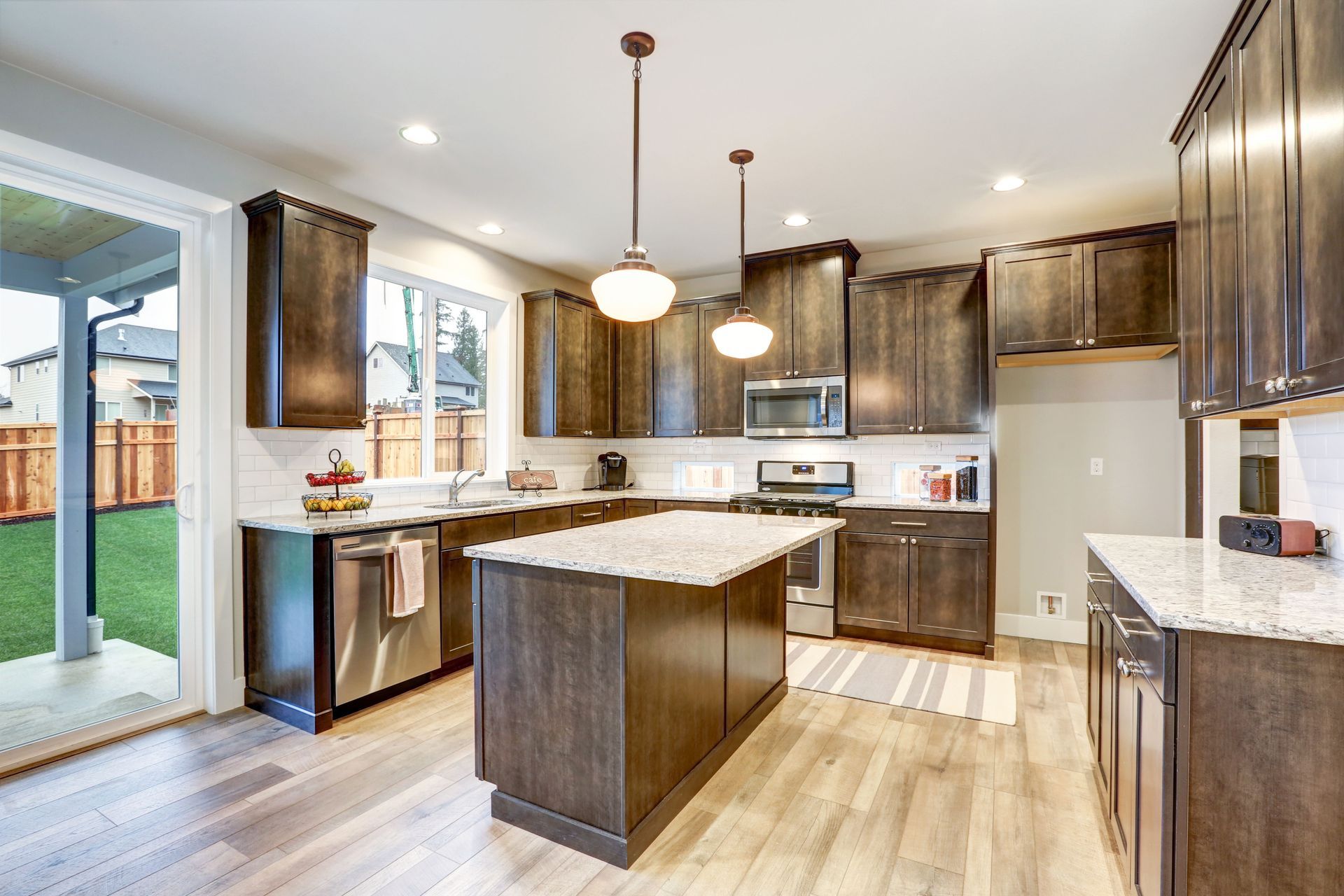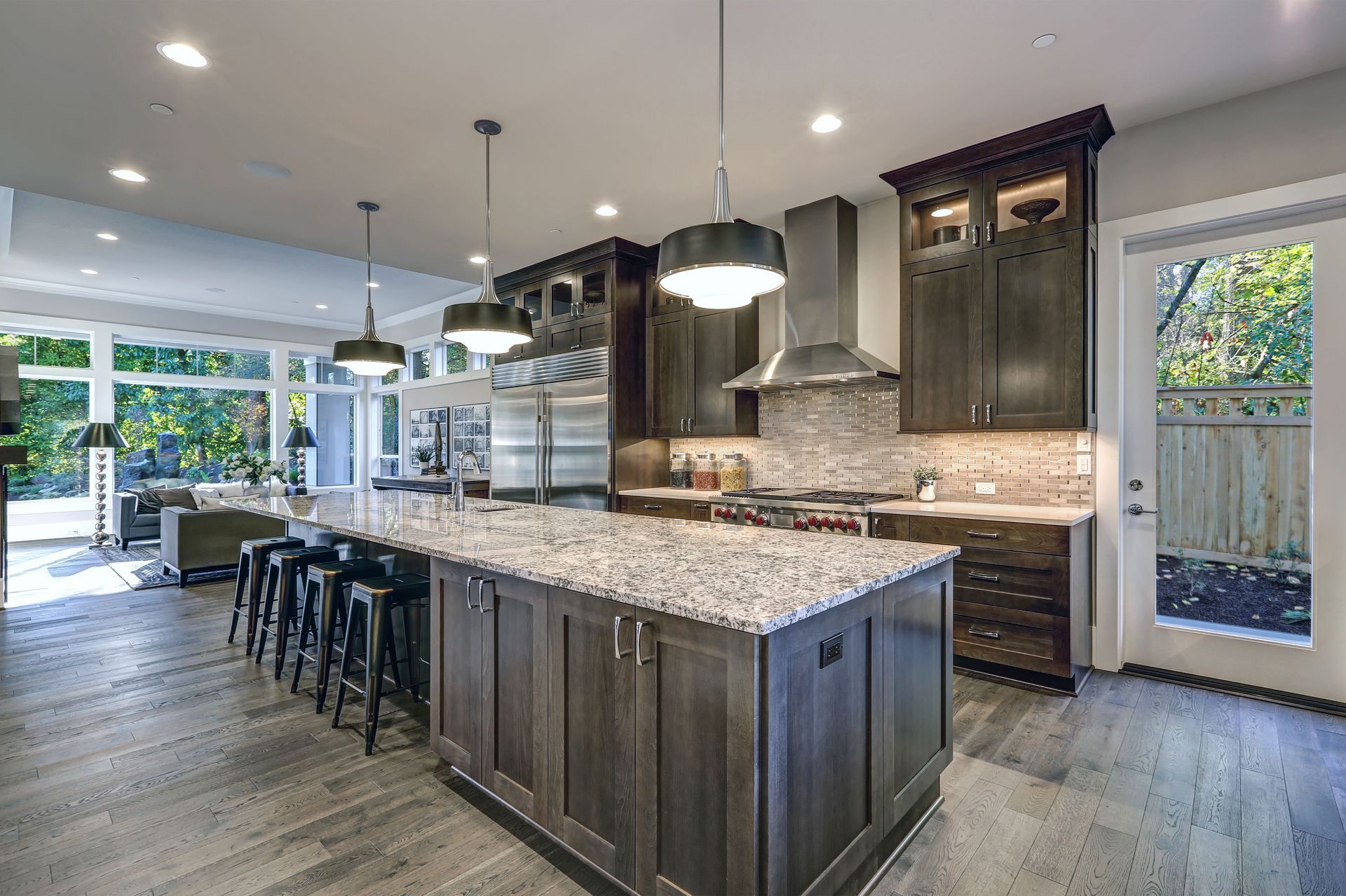November 24, 2025
Renovating or designing a kitchen can be an overwhelming task, but hiring a skilled kitchen designer can alleviate much of the stress. Whether you're starting from scratch or updating an existing kitchen, asking the right questions can ensure you get the results you want. In this article, we explore five key questions that homeowners should ask to make the most out of their collaboration with a kitchen designer. Each section targets crucial aspects of the design process, from understanding the designer's experience to post-project support. Armed with these questions, you'll be better equipped to navigate your kitchen redesign journey.
1. Can You Explain Your Experience and Design Style?
The first step in any successful collaboration is understanding your designer's experience and style. One critical question to ask is about their design experience and educational background. Knowing their credentials provides insight into their capability to transform your vision into reality. Ask them to provide examples of previous kitchen projects, which will give you a sense of their aesthetic and functional style. A designer's past work can often serve as a showcase of their creativity and problem-solving skills.
It's also important to understand how they keep up with current kitchen trends. Trends evolve, and a kitchen designer who stays updated can suggest fresh, innovative ideas that enhance your kitchen's appeal. Ask about their design style to ensure it aligns with your vision. Some designers are minimalistic, while others may favor more elaborate designs. Furthermore, inquire if they hold any certifications or have received awards in kitchen design, as such recognitions can vouch for their expertise in the field.
Understanding a designer's style and influence is pivotal in establishing a successful partnership. It opens up discussions around what is possible for your kitchen while ensuring the designer's approach matches your aspirations. Moreover, knowing their philosophy provides context to their decision-making process, ensuring your styles align. As the Home Improvement Research Institute notes, painting is included in about 48% of kitchen remodeling projects, highlighting the importance of a designer's style in selecting color schemes. By investigating these areas, you set the foundation for a productive relationship.
2. How Do You Manage Project Budgets and Costs?
Budget is often a primary concern when undertaking a kitchen redesign. A key question here pertains to how the designer determines and manages project costs. Understanding the cost structure helps you prepare financially and avoid unforeseen expenses. Ask if they can work within a specified budget and how they ensure adherence to it. This discussion points to their flexibility and financial management skills, ensuring that the project proceeds without unnecessary financial strain.
Learn about how the designer handles changes to the project scope or budget. Changes are inevitable, but knowing how they accommodate adjustments can prevent budgetary surprises. Additionally, inquire if there are any hidden costs in their services; transparency here avoids misunderstandings later. Their policy on payments and refunds is equally important, as it informs you about the financial terms you're agreeing to. Addressing these financial questions will ensure you keep the project within budget and on track.
Financial transparency contributes to a harmonious working relationship. Designers who articulate costs clearly build trust, which is integral to professional collaboration. They should also share experiences of past financial challenges and how they resolved them, providing insight into their problem-solving abilities. By integrating these cost discussions, you can effectively gauge the feasibility of your design aspirations against budget realities. Ultimately, approaching your budget with informed questions empowers you to make sound financial decisions.
3. What Is Your Design Process and Typical Project Timeline?
Understanding the design process is crucial for setting expectations. Begin by asking what their approach to the design process is. A structured approach can reassure you that the designer is organized and efficient. Knowing the steps involved also highlights how your input will be incorporated, ensuring the process is collaborative. Each designer's method may vary, but transparency here sets a cooperative tone for the duration of the project.
Also, inquire about how long it typically takes to complete a kitchen project. Project timelines provide a roadmap for your redesign, allowing you to plan accordingly. Ask how the designer handles project deadlines to ensure they stick to your schedule without compromising quality. It's pertinent to ask what happens if there is a delay in the project, as this will reveal their contingency planning. This allows you to mitigate potential disruptions, especially if living arrangements depend on the completion date.
Frequent communication is vital for project updates. Discussions about how often you'll meet to discuss progress help maintain transparency throughout the process. Your involvement ensures that the project stays on track and aligned with your expectations. Establish clear terms regarding updates, such as weekly meetings or reports, to foster ongoing dialogue. Such clarity prevents misunderstandings and ensures continuous alignment with your vision.
4. How Will We Communicate and Collaborate During the Project?
Effective collaboration hinges on open communication. Ask how involved you can be in the design process, which will highlight the level of collaboration you can expect. Establishing this at the outset ensures your ideas and preferences are adequately represented. Understanding the designer's preferred method of communication, whether it's email, phone calls, or in-person meetings, ensures you are kept informed. A well-structured communication plan will streamline collaboration and ensure seamless project dynamics.
It's vital to address how the designer will ensure your needs and style preferences are included. A designer should possess the ability to interpret your vision while offering expert advice to enhance functionality and aesthetics. Determine who your primary point of contact will be, facilitating smooth communication throughout the project. Knowing this contact ensures you have a reliable line of communication, vital for resolving questions or concerns as they arise. Clear channels of communication prevent potential issues from escalating into larger problems.
Ensuring resolution methods for potential disagreements maintains a harmonious working relationship. This question provides you insight into their problem-solving approaches, beneficial for encountering any creative debates. Understanding their process for addressing disagreements guards against any potential friction during the project. By aligning on these crucial aspects of collaboration and communication upfront, you pave the way for a mutually satisfying design experience. Engaging actively with your designer ultimately translates into a kitchen space that is a true reflection of your vision.
5. What Materials Do You Recommend?
Discussing materials is essential to understanding the quality and sustainability of your kitchen. Begin by asking what types of materials the designer recommends. This question reveals the designer’s knowledge and expertise in choosing materials that balance aesthetics with functionality. Ask if they use eco-friendly or sustainable materials, as environmental concerns are increasingly important in modern design. Selecting sustainable materials can reduce the environmental footprint of your project, contributing positively to both your home and planet.
Understanding their method of sourcing quality materials ensures that the integrity of your project is maintained. Ask about any preferred brands or suppliers the designer works with, which can give confidence in the reliability of the materials used. Inquiring about their material sources also indicates the designer's relationships and networks within the industry. These connections can sometimes lead to cost savings based on partnerships, which could positively impact your budget. It also reaffirms that quality is not compromised for cost-cutting.
Finally, consider how they handle the disposal of old materials. Responsible disposal methods underline their commitment to reducing the environmental impact of the renovation. Familiarizing yourself with these processes ensures that your project aligns with both local regulations and your ethical standards. According to the Home Improvement Research Institute, painting is included in about 48% of kitchen remodeling projects, emphasizing the importance of selecting sustainable paint options. By approaching this topic with well-considered questions, you ensure your kitchen design project is sustainable from start to finish.
Engaging a
kitchen designer is a valuable investment that can significantly enhance the functionality and aesthetic of your kitchen. By asking these key questions, you build a solid foundation for a successful renovation or redesign. Understanding each facet from the designer's experience, cost management, collaboration, materials, and post-project support allows for a seamless process. Clarifying expectations and fostering open communication with your kitchen designer will lead to a kitchen space that suits your lifestyle. These efforts ensure your kitchen becomes a cherished part of your home for years to come. Contact Creative Design Center today for more information.




